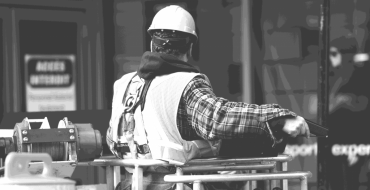
The COVID-19 global pandemic has impacted businesses throughout the entire country. However, some businesses and activities may be less affected than others because state and local governments have provided certain exemptions to the multitude of stay-at-home orders that have been issued. Many of these orders, exempt construction services and activities because they are deemed “essential.” While construction has been classified as an essential industry here in Florida, there are still several potential consequences of COVID-19-related issues that can negatively impact a construction project. Being essential does not mean you are immune to delays and cost increases on a construction project and those who manage, build and finance such projects need to prepare accordingly.
- Proactively identify what may cause a delay before it impacts the project.
Labor shortages, supply chain issues and government restrictions are but a few of the types of delays that are likely to affect construction projects during this pandemic crisis.
In Florida, before the COVID-19 pandemic, a labor shortage in the construction industry was already a growing problem. Such shortages and lack of skilled trades were already causing delays to projects across the state and causing significant financial harm. The COVID-19 pandemic will only further exacerbate this problem despite the “essential” nature of construction activities because workers, who despite following CDC and public health guidelines, may still get sick, may be unable to work due to family obligations, or may not want to risk exposure in public.
Attorneys that practice community association law regularly prosecute and defend against claims that sound in the law of contracts, real property, civil rights, and more….
The supply chain for materials and equipment used on construction projects are often manufactured and supplied outside of Florida or come from overseas, like China. Such manufacturers and suppliers may not be considered “essential” like they may be in Florida and may be under a complete shutdown order. In addition, shipping and logistics companies are experiencing historically high volumes and may not have capacity to timely deliver.
Construction projects rely on plan reviews and inspections from local building departments and officials to progress to the next phase or trade per the construction schedule. Such reviews and “critical path” inspections may get delayed if the building departments don’t have available inspectors, are experiencing a backlog or have modified their inspection procedures in light of COVID-19. Have there been changes to the inspection protocols in your jurisdiction? Have your local building departments issued additional health and safety guidelines for construction projects? These are important questions to answer. For example, the city of Tampa now recommends additional oversight, including COVID-19 site protection training for all site safety directors and project managers, among other things, on projects greater than tjhree stories or 50 feet in height.
- Know your contract.
I tell clients all the time that their best tool on a construction project is the contract. Why? Because on complex projects, liability for delays and cost impacts will depend upon the specific language of the construction contract at issue. The parties to the contract should understand their rights and obligations regarding delays. Therefore, it is very important for them to review and understand their contract.
Parties should identify the key provisions that implicate COVID-19-related delays. Such provisions are typically referred to as “force majeure” clauses, which excuse some obligations under the contract because of certain types of delays. The force majeure provisions drafted before this current crisis most likely did not specifically cover the outbreak of a disease or pandemics. However, in most instances, COVID-19-related delays would fall under a catch-all category because the delays were beyond the control of the parties to the contract.
If COVID-19-related delays are covered by your contract’s “force majeure” provision, then you will need to understand how to make a claim and what types of remedies are available. In the event of a delay, parties are typically allowed additional time to perform their obligations and/or may seek additional compensation or reimbursement of costs and expenses incurred due to a delay. Before seeking such non-monetary or monetary relief, the party asserting a claim caused by force majeure delays typically must provide some type of written notice within a certain time frame. The notice provisions are very important because failure to strictly comply may be fatal to advancing a delay claim for time or money in the future.
- Document your claim.
It’s not enough to just properly and timely make a claim under your contract, but it’s also critical to document all delays and how the delays were caused. The contract isn’t the only tool to help mitigate delays on a construction project—daily reporting and other documentation is very important for the presentation and quantification of a delay claim. If delay issues are discussed at site meetings, ensure that minutes are kept and circulated to everyone in attendance. Parties asserting delay claims should document the causes of delay (i.e., labor shortages, material shortages, inspection delays, etc.) using the daily reports, meeting minutes, letters, emails or other communication tools used on construction projects.
- Communication is key.
This pandemic is unprecedented and the impacts it may have to “essential” construction activities and projects may be significant. COVID-19 will not take sides so the stakeholders on a construction project should collaborate and communicate with each other as often as necessary to mitigate potential damages. In light of the challenges and strains that COVID-19 will cause to the progress of construction projects, I am seeing owners and contractors working with each other to negotiate change orders and amendments to their contracts before the impacts become unmanageable.
By being proactive, understanding your contractual rights and communicating effectively, owners, contractors and subcontractors may find a renewed spirit of cooperation amidst all the chaos and uncertainty that COVID-19 has brought to the construction industry—an industry that is essential but not entirely immune.